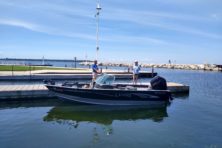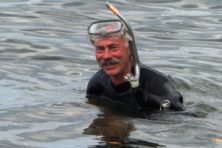Keeping Your Boat and our Water Clean
- Share
- Tweet
- Pin
- Share
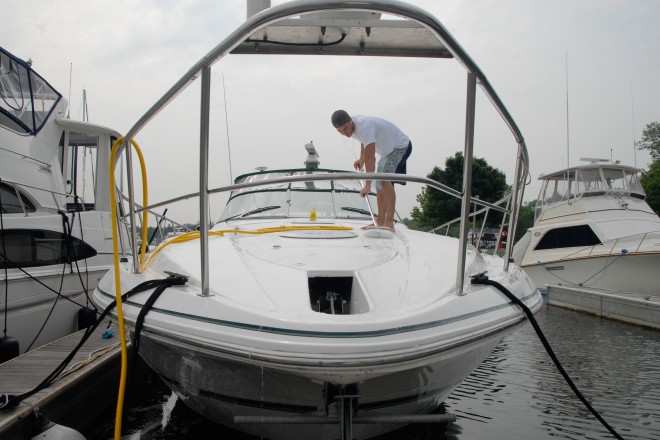
Keeping your boat clean means something different to each boater. For some it means rinsing off fish guts after a successful catch, washing away scuff marks from a lively sail, or keeping a yacht detailed to shine. The thing that all boaters have in common is a love for both their craft and being out on the water.
There are some universal rules for maintaining and respecting both of these passions. It is essential to consider water quality, aquatic life, and human health as the top factors when cleaning your boat. Whether you are out for the catch of the day or on a sunset cruise, your entire experience depends on these factors. The good news is that the cleanliness of your boat does not have to be compromised in the name of water quality. Cleaning techniques and cleaners that are better for the water are also often better for your boat.
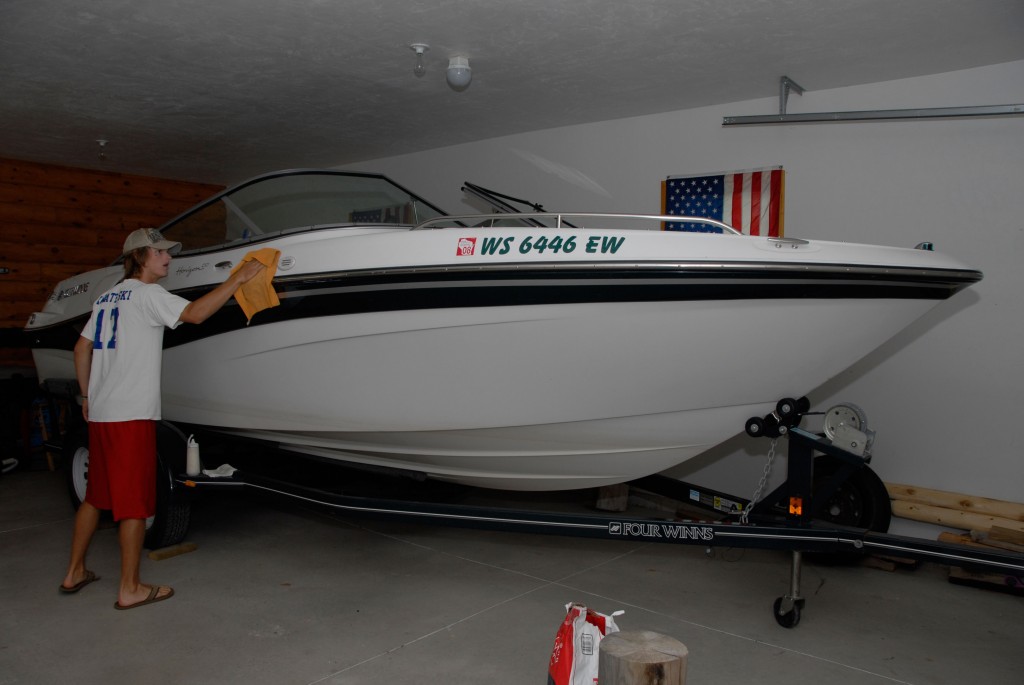
Maintain the quality of your boat and the water by following these boat cleaning tips:
- Clean your boat on land whenever possible – particularly major cleaning of the hull.
- Take care of water lines on boats in slips with regular rinsing.
- Frequent cleaning is essential. Clean your boat often so that dirt, pollen and air particulates do not wear away at the wax and damage your boat sealant (gel coat).
- The best cleaning tools are water, a coarse nonabrasive cloth or sponge, and elbow grease. If soap is needed, at least use soap that is biodegradable, nontoxic, and phosphorus free. The best soap for the water is also detergent-free with a vegetable or citrus base. The best boat cleaning gadgets are micro-fiber cloths, absorbent towels, squeegies, nonabrasive sponge mitts and extendable boat brushes.
- Remember that some cleaners actually cause damage to boat sealant causing the sealant to soften and oxidize or become chalky. Many of these same cleaners can be toxic to fish and wildlife and/or are damaging to water quality. Stay away from cleaners that have phosphorus, bleach, ammonia, alcohol, petroleum distillates, lye, and sodium hypochlorite. “Warning,” “caution,” “danger” and “poison” are words that indicate the level of toxicity of a cleaning product and they should generally be avoided on boats. You can ask retailers for a Material Safety Data Sheet for a full listing of constituents that the federal government considers hazardous substances. Use natural cleaners instead of traditional cleaners as much as possible. Replace traditional solvent-based cleaners with baking soda, borax, vinegar and lemon/lime juice. For a full listing of alternatives to traditional cleaning products for boats go to Clean Green Boat Maintenance Checklist at http://www.coastal.ca.gov/ccbn/checklist.pdf, and a list of less toxic cleaners at http://www.coastal.ca.gov/ccbn/toolkit/fs-cleaning.pdf.
- All cleaning products, even natural cleaners, should be used sparingly because the nontoxic label is meant for humans not wildlife. Detergents, for example, can damage the natural oils on fish gills, limiting their ability to breathe.
- Clean teak with mild soap and an abrasive pad of bronze wool. Solvents in standard teak cleaners tend to eat away at wood and damage seam compounds.
- Boats that are kept in fresh water should be waxed two to three times per year. Waxing should begin with a cleaner wax followed by two coats of a liquid or paste wax. Waxing should be done by hand unless the boat is oxidized or chalky. Only trained professionals should use buffers to wax boats because it is easy to leave streaks and uneven areas.
- If the boat is severely oxidized, compounding the boat will return the shine. Compounding should also only be done by a trained professional once or twice in the lifetime of a boat because it works by removing a thin layer of the gel coat. If compounding is done incorrectly it can wear through the gel coat and cause real damage.
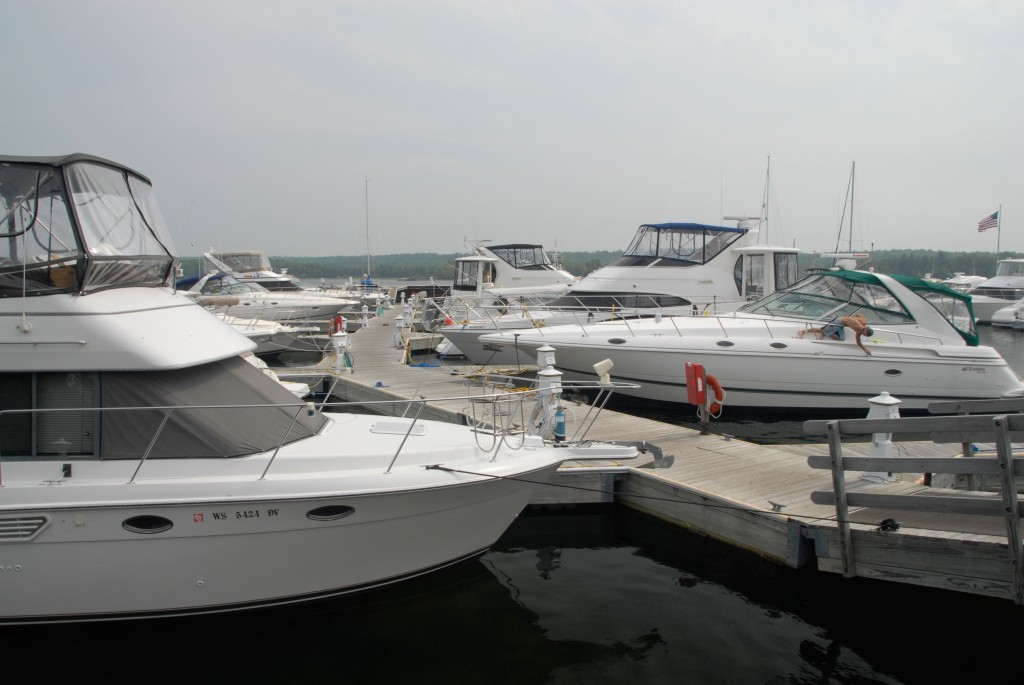
When you trailer your boat remember to rinse the entire hull and transom area to avoid transporting invasive species like zebra and quagga mussels and Eurasian milfoil. Door County has implemented the Department of Natural Resources’ “Clean Boats Clean Water” program which recruits and trains volunteers to remind and assist boaters with cleaning their boats at launches. It is also illegal to transport invasive species.
Enjoy this summer on your boat and respect being out on the water by doing your part to protect water quality when cleaning your boat.

